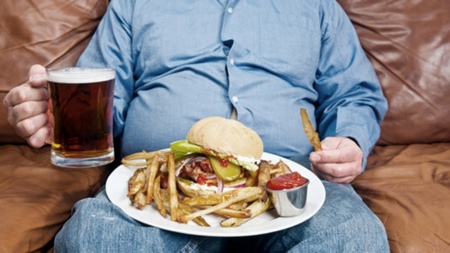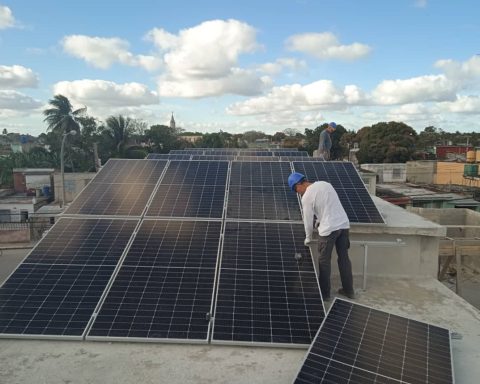The simplification of taxation on consumption is at the heart of the first phase of the tax reform, which the government intends to send to Congress this semester. According to recent statements by the Minister of Finance, Fernando Haddad, the text intends to be based on two proposed amendments to the Constitution (PEC) in progress in Congress, and the government may add or remove some points.
The two proposals bring together several taxes that today focus on consumption in less taxes. The divergence lies in the number of unified taxes and the way in which the merger will occur.
PEC 45/2019
Authored by federal deputy Baleia Rossi (MDB-SP), PEC 45/2019 was reported by deputy Aguinaldo Ribeiro (PP-PB), both re-elected last year. THE report has been read in the special commission of the Chamber of Deputies for the tax reform, but had the procedure suspended after the president of the Chamber, Arthur Lira, extinguish the collegiateclaiming that the operating deadline was extrapolated because of the covid-19 pandemic.
PEC 45 provides for the creation of the Tax on Goods and Services (IBS). The tax would replace two contributions – the Social Integration Program (PIS) and the Contribution for the Financing of Social Security (Cofins) – and three taxes – the Tax on Industrialized Products (IPI), the Tax on the Circulation of Goods and Services ( ICMS) and the Tax on Services (ISS). Currently, the contributions remain entirely with the Union, the IPI is shared between the Union and local governments, the ICMS remains with the states; and the ISS, with the municipalities.
The IBS rate would be composed of the sum of the federal, state and municipal rates. Each sphere of power could define the rate through ordinary law. The calculation basis (where the tax is levied) would be regulated in a supplementary law.
The Selective Tax would also be created, which would focus on the consumption of products that cause harm to health, such as cigarettes, alcohol and sugar derivatives. This tax would be charged “externally”, at the beginning of the production chain, incorporated into the cost of the product and increasing the calculation basis on which the IBS rate is applied.
The PEC also provides for the collection of IBS at destination, in the state where the goods are consumed. This would end the tax war between Federation units. There would be a transition period of six years for the adoption of the IBS, with the extinction of PIS and Cofins in the first two years and the gradual reduction of ICMS and ISS rates in the remaining four years.
The report presented at the time foresaw few changes in taxation on wealth, with “specific changes” to reinforce the progressivity (charge on the richest) of the Causa Mortis Transmission and Donation Tax (ITCMD), which is levied on inheritances and donations, and the Tax on Motor Vehicle Ownership (IPVA). The text also provides for the maintenance of the Manaus Free Trade Zone and Simples Nacional, a special regime for micro and small companies.
PEC 110/2019
Attached to a tax reform proposal paralyzed in the Senate since 2004, PEC 110/2019 was presented in the House in 2019, but only had the opinion read two years later. Reported by the non-reelected senator Roberto Rocha (PTB-MA), the text creates two taxes: the Contribution on Goods and Services (CBS), which would remain with the Union, and the Tax on Goods and Services (IBS).
Under the proposal, the Contribution on Goods and Services (CBS) would replace the Contribution for the Financing of Social Security (Cofins), the Social Integration Program (PIS) and the Public Servant Asset Formation Program (Pasep). The Tax on Goods and Services (IBS) would replace the Tax on the Circulation of Goods and Services (ICMS), collected by the states, and the Tax on Services (ISS), which is the responsibility of the municipalities. The proposal did not unify the Tax on Financial Operations (IOF), the Contribution for Intervention in the Economic Domain (Cide) and the education allowance in the new federal tax.
Regarding the IBS, the text proposes a single complementary law for the 26 states, the Federal District and the municipalities, but it brings more flexibility to local governments. Each public entity could set the IBS rate, which would be the same for goods and services. The collection would be at the destination, at the place where the goods were consumed, with a transition period of 20 years.
The complementary law could maintain tax benefits for various sectors of the economy, but the measures would be defined nationally, not at the discretion of each state or municipality. The Manaus Free Trade Zone, the Simples Nacional, the Export Processing Zones and the special regime for government purchases (purchases made by the government) would be maintained.
The Tax on Industrialized Products (IPI) would be replaced by the Selective Tax, which would be levied on alcoholic beverages, tobacco derivatives, foods and beverages with sugar and products harmful to the environment. As with the IPI, the Union would collect the tax, allocating part of the revenue to the states and municipalities.
The exemption on basic basket products would end. In exchange, there would be a refund of the taxes levied on these goods to families registered in the Single Register of Social Programs of the Federal Government (CadÚnico).
Regarding property taxes, the report institutes the collection of IPVA for water and air vehicles, such as yachts, jet skis and jets. On the other hand, it would exempt public transport, cargo transport, artisanal fishing boats and aquatic and riverside populations. The Urban Property and Territorial Tax (IPTU) would have its calculation base updated at least once every four years
Income tax
The two proposals provide for the reformulation of taxes on consumption, without interfering with taxation on income. During the World Economic Forum in Davos, Switzerland, Minister Haddad stated which intends to discuss the simplification of taxes on consumption in the first semester and leave the Income Tax reform for the second semester.
Any changes in Income Tax would involve the return of taxation on dividends (a portion of companies’ profits passed on to shareholders), in exchange for a decrease in Corporate Income Tax and Social Contribution on Net Income. Since 1995, dividends in Brazil are exempt from income tax.
Another possible change, signaled recently by President Luiz Inácio Lula da Silva in a meeting with trade union centrals, would be to raise the Income Tax exemption range. Without correction since 2015, the table exempts only those who earn BRL 1,903.98 per month.
















